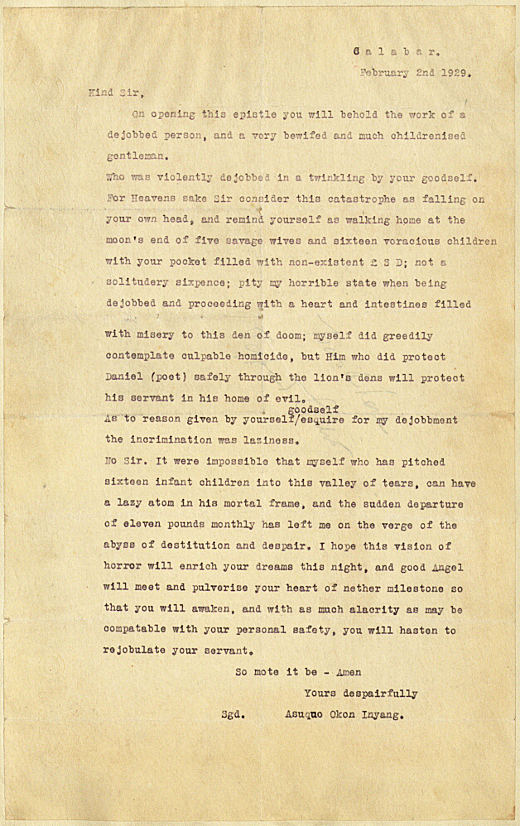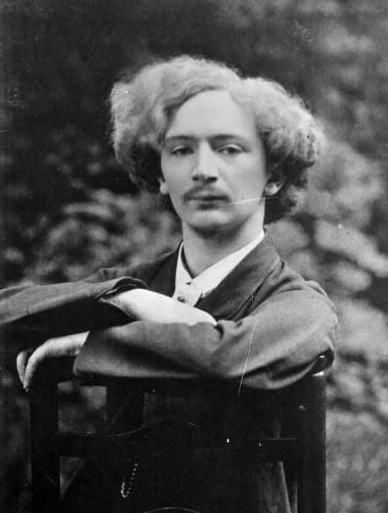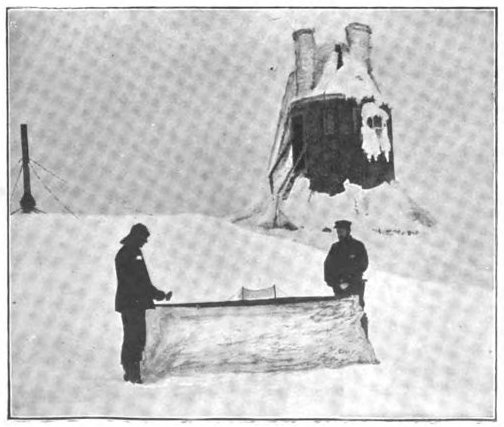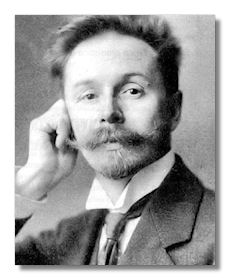Monthly Archives: October 2011
Reading Matter
Boffins at a lab somewhere in the Swiss Alps recently made a surprising discovery. For years it has been believed that the only prose a person ever needed to read for optimum stimulation of the cranial integuments is the various outpourings of Mr Key here at Hooting Yard. Now, after experiments on the brains of rats, voles, and Canada geese, and on plums, it transpires that turning one’s attention to other reading matter can actually be beneficial. Even moral pygmies can be improved by works other than those of Mr Key!
In keeping with this startling insight, and at the request of a couple of devotees, I have added to the site a Reading List. This comprises, in reverse chronological order, every book Mr Key has read since the beginning of the current year of Our Lord, MMXI. It does not include books tossed aside in irritation or despair after twenty pages, nor books where only bits and bobs – rather than the whole damned thing – were read. It will be updated regularly.
Cosmic Dabbling
This week in The Dabbler I introduce readers to Jimmy Goddard’s seminal masterpiece Cosmic Friends. Yava Hoosita!
The Curse Of The Ground
The earth has been torn and convulsed as by the spasm of some great agony, and the signs of it lie thick around. Huge beds of rock, thousands of feet in thickness, have been cracked and shivered like potsherds; streams of molten metal have been injected into the fissures, and have surged through the rents and swept vast floods of burning lava over the smiling plains. There must have been times in the history of the development of this earth, fair and calm as it lies now under the sun, when its whole structure must have been shaken to the very centre; when there was dread peril lest, like some lost planet, it should be shattered into fragments and fill its orbit with a cloud of wreck. But some sure hand has helped earth’s travail, and has brought forth out of the chaos of struggle and storm an orderly, smiling, serene, and beautiful world. The signs of past agony are there, to those whose eye can pierce the surface; but a loving hand has clothed it all with a glow of beauty and a robe of grace. The regions where the convulsion was fiercest, where the scars are deepest, are the regions of glorious mountain beauty, whither pilgrims wend as to nature’s most sacred shrine. The rents and chasms, clothed with the most splendid forests, with streams leaping and sparkling through the emerald meadows to the hollows below, breathe nothing but beauty, and stir all hearts to joy and praise.
J Baldwin Brown, Misread Passages Of Scripture (1869)
Violently Dejobbed In A Twinkling
Many thanks to Peter Christian for alerting me to this magnificent letter.
A full transcript can be read at Letters Of Note, which looks like a blog well worth keeping an eye on.
Swinburne
The Tiny-Headed Pod
Perils Of Cartography
Appended to The Dabbler review of a history of the Ordnance Survey, a comment from Jonathon Green to serve as a warning to surveyors, geometers, and cartographers everywhere:
My favourite, if tragic cartographical story is retailed by Graham Robb in The Discovery of France (2007). It tells how a young geometer, employed in surveying a country that was still highly localised and almost wholly unmapped, arrived in the village of Les Estables, some forty miles (and about 400 years) away from Lyons. The villagers, simple peasant folk with their simple peasant ways and beliefs, assumed that this outsider, never seen in their village, must therefore be a herald of Satan. They hacked him to pieces.
Societies
The Evangelicals’ far-flung humanitarian concerns prompted them to found literally hundreds of philanthropic and missionary organisations, some with dense networks of local branches and committees reaching across the country. The diversity of these causes, as well as their individual limitations, may be inferred from this small selection of late eighteenth- and early nineteenth-century societies, some of whose titles are as long as their constitutions:
The Ladies’ Association for the Benefit of Gentlewomen of Good Family, Reduced in Fortune Below the State of Comfort To Which They Have Been Accustomed;
The Friendly Female Society, for the Relief of Poor, Infirm, Aged Widows, and Single Women, of Good Character, Who Have Seen Better Days;
The Guardian Society, for the Preservation of Public Morals by Providing Temporary Asylums for Prostitutes;
The London Orphan Asylum, for the Reception and Education of Destitute Orphans, Particularly Those Descended from Respectable Parents;
The National Truss Society for the Relief of the Ruptured Poor;
The Society for Returning Young Women to their Friends in the Country;
and the Royal Humane Society (to restore “persons in a state of suspended animation”).
Seemingly, the Evangelicals had a society to cover every contingency.
Richard D Altick, Victorian People And Ideas (1974)
Fifteen Thousand Useful Phrases
Let me tell you how Hooting Yard prose comes to be written, and explain how this is due to change.
As some of you will know, because I have bashed on about it before, probably, the current practice is, and always has been, for me to enter into a state of heightened consciousness and to wrench, manfully, from the very inner core of the depths of my immortal soul, majestic sweeping paragraphs of prose. It is tough and unrewarding work, and harrowing! harrowing!, but it is both my duty and my destiny, as was writ in the stars, those glittering blobs of impossibly distant burning rock spread out against the firmament.
Such spiritual exertions take their toll, so I am pleased that in future the generation of Hooting Yard prose will no longer be so harrowing!, harrowing! Why so?, you ask. Well, thanks to Glyn Webster, Hooting Yard Research Fellow and janitor of The Pavilion of Innocent Pastimes, I have had drawn to my attention the majestic Fifteen Thousand Useful Phrases : A Practical Handbook Of Pertinent Expressions, Striking Similes, Literary. Commercial, Conversational, And Oratorical Terms, For The Embellishment Of Speech And Literature, And The Improvement Of The Vocabulary Of Those Persons Who Read, Write. And Speak English by Grenville Kleiser, originally published in 1917. Now, all I need do is pluck a selection of phrases, jam them together, chuck in the occasional proper name or contextual setting, and foof-la!, entire paragraphs of mighty prose are ready for your perusal and brain-numbing study.
You may recall that you have Mr Webster to thank for the conversion of the 2003-2006 Hooting Yard material into an indexed, fully searchable archive. In keeping with his technowhizzery, he has created a machine-readable version of Grenville Kleiser’s invaluable resource,- the Phraseological Supercollider – so one does not even have to pick one’s own crop from those fifteen thousand phrases. His very first experiment delivered this passage:
Happily for us, his face caught the full strength of the rising wind. The pith and sinew of mature manhood, the loud and urgent pageantry of the day, impalpable nothingness. I have acquired some useful experience. Delude not yourselves with the belief, awed devotion, sombre relations. I very rarely allow myself that pleasure.
Shove in a “Dobson” or a “fictional athlete Bobnit Tivol” or an “in Pointy Town”, and you’re laughing.
Further tweaks to what I think we should call the Webster-Kleiser Phraseological Supercollider will enable us to, for example, randomly recombine the adjective-noun pairs of Kleiser’s “Useful Phrases”. Again, the initial test of this module came up with extremely helpful “new” useful phrases such as “interpretative farce”, “noonday plundering” and “restricted cudgelling”.
It occurs to me that, having revealed to you the existence of Fifteen Thousand Useful Phrases, I could leave you to get on with it, creating your very own majestic sweeping paragraphs, while I retire to a dilapidated seaside resort, there to suck on an ice lolly and be buffeted by squalls. We shall see.
Happy Birthday
This morning, at nine o’ clock, I celebrated Adam’s birthday, for as we know
In the seventeenth century, in his great work, Dr. John Lightfoot, Vice-Chancellor of the University of Cambridge, and one of the most eminent Hebrew scholars of his time, declared, as the result of his most profound and exhaustive study of the Scriptures, that “heaven and earth, centre and circumference, were created all together, in the same instant, and clouds full of water,” and that “this work took place and man was created by the Trinity on October 23, 4004 B.C., at nine of the clock in the morning
or so said Andrew Dickson White in A History of the Warfare of Science with Theology in Christendom (1896). It has been suggested that White was rather selectively quoting Lightfoot, and there are arguments to be had. But let us not get into a kerfuffle about it. Clearly the important thing is that God knew what time it was, on what day, in what month, of what year. Being majestic and subtle and ineffable, He did not proclaim the beginning of all things as “Year Zero”, as the tiresomely literal-minded Pol Pot did, in spite of a French university education. I think we can all be grateful that the universe, with all its kinks and crooked timbers, was created by a mischievous beardy rascal and not by that Cambodian psychopath.
Snowbound Ping-Pong
Here is possibly the finest ping-pong photograph ever snapped:
For further details, see the always intriguing Futility Closet (essential daily reading at Haemoglobin Towers).
Boris Johnson famously calls ping-pong whiff-whaff, but in its early days it was known on these shores as Gossima.
The Young Person’s Guide To Music Appreciation
A friend of mine posted a Facebook Facecloth message, saying she is DJing tonight and has no idea what records to play, asking for tips on what “the kids” are listening to these days.
I replied: “It’s not what the kids are listening to, it’s what they should be made to listen to. I recommend Scriabin’s ‘Poem Of Ecstasy’, Op.54.”
Scriabin : tiny little hands
In Which Mr Key Foretells The Future
Last night I watched the first episode of Derren Brown’s new television series “The Experiment”. Is it possible, he asked, to hypnotise someone into carrying out an assassination, and for them to have no memory of the deed? This being a Derren Brown show, the answer was of course a resounding “yes!”. We watched as a harmless, affable young IT person was supplied with what he thought was a loaded gun, placed into a trance, and then, in a crowded theatre, calmly “shot” a celebrity. The target was Stephen Fry.
It was all very entertaining, but whereas we know (and he himself cheerfully admits) that Derren Brown is simply a showman with a bag of tricks, it was evidence that your very own Mr Key is a seer who can foretell the future. Back in the summer of 2009, I put these words into the mouth of the bestselling paperbackist Pebblehead:
You will recall Digby Smew, the fascist podcaster who first appeared in my book The Assassination Of Stephen Fry.
Cue eldritch, spooky music as I stalk off into the mist in my cape and wizardy hat.
Seedy Dabbling
This week in The Dabbler, I present an exciting project for seedy persons.







